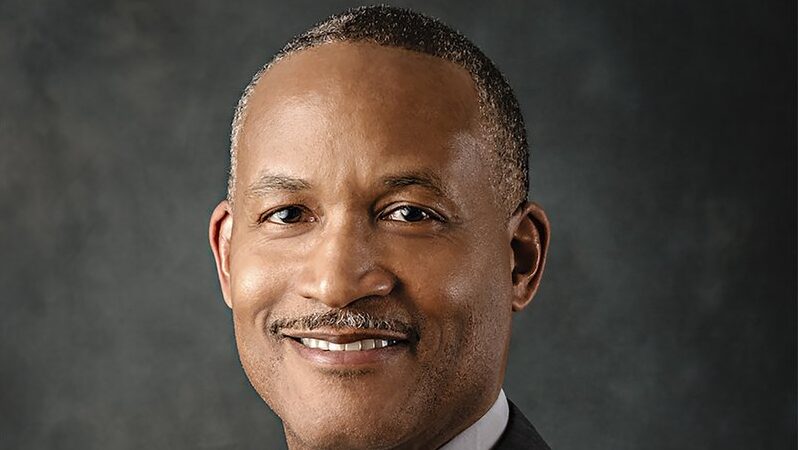NEW YORK (AP) — Last month majority Black-owned banks City First Bank of Washington DC and Broadway Financial of Los Angeles said they would merge to create the U.S.’s largest minority deposit institution, or MDI.
MDIs are banks and financial service companies majority owned by racial and ethnic minorities. They often function as conduits to poverty-stricken neighborhoods, providing low cost loans and access to capital that wouldn’t typically be available.
City First CEO Brian Argrett will be CEO of the new bank once the merger is completed in early 2021. The combined bank will have roughly $850 million in deposits and $1 billion in assets. He spoke to The Associated Press about the merger and why minority-led institutions are important for racial and ethnic minorities to get a leg up.
Q: How did you start working at City First?
A: I like to call myself an accidental banker. I ran a small business investment company for many years. We were focused on providing financing to women and minority entrepreneurs. I joined City in 2011, after the financial crisis. City First was a lot smaller when I joined, so we worked to grow on that foundation.
READ MORE: Serena Williams on money management: ‘When you work hard, you reap the benefits’
Q: How did COVID impact your business?
A: Minority communities have been disproportionately impacted by the pandemic. More deaths. More wealth destruction. We saw this as an opportunity to help our communities even more. We did $30 million in loans through the Paycheck Protection Program, most of that going to minority-led businesses, non-profits and advocacy groups. We also did 1,300 loans through a program started by the Washington, D.C. mayor’s office.

Q: Why does the country need minority deposit institutions?
A: We have all seen the compounding impacts from centuries of racial inequities in this country – social unrest, higher unemployment, poverty. Economic injustice is at the root of racial injustice. That’s why the work of MDIs and community deposit financial institutions are more important than ever – they are squarely focused on these inequities like getting capital to those who truly need it.
READ MORE: Black homeowners routinely discriminated against by appraisers
Q: Why did City First and Broadway pursue this merger?
A: This merger was in discussion for over a year, well before COVID. We focus on housing, non-profit finance and small business financing. Broadway also focuses on commercial lending and has a very strong affordable housing practice in Southern California. We’ll be able to increase the amounts of capital we can offer and offer more systemic solutions for the issues we talked about earlier. This is about creating a national platform where we can scale our solutions to help with these problems impacting these communities.
Have you subscribed to theGrio’s podcast “Dear Culture”? Download our newest episodes now!
Source link
 Black America Breaking News for the African American Community
Black America Breaking News for the African American Community
